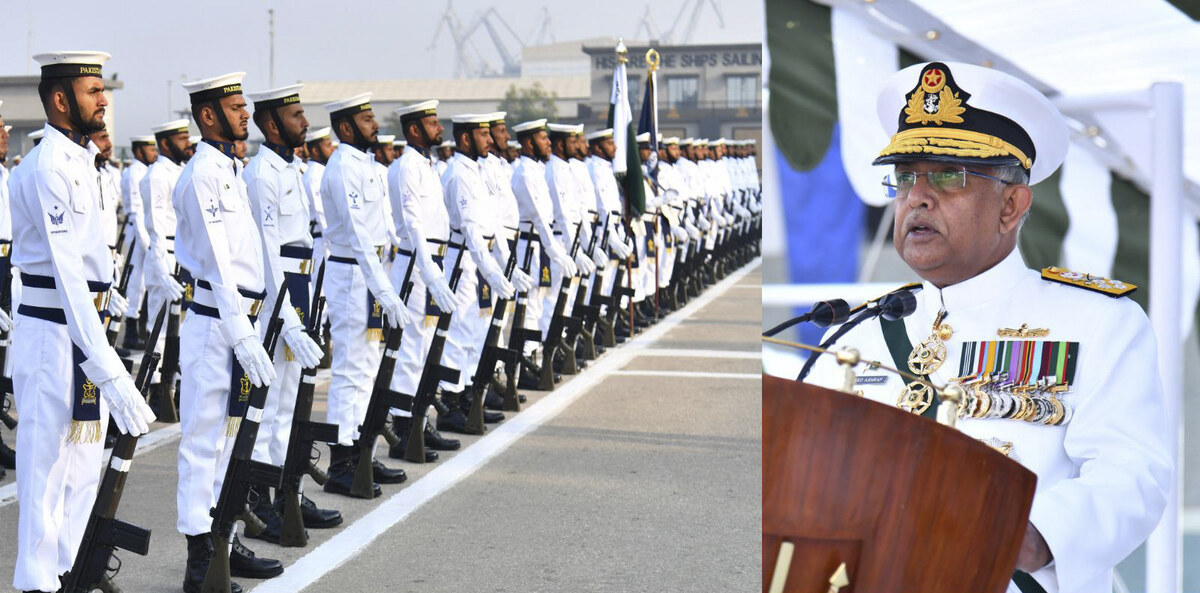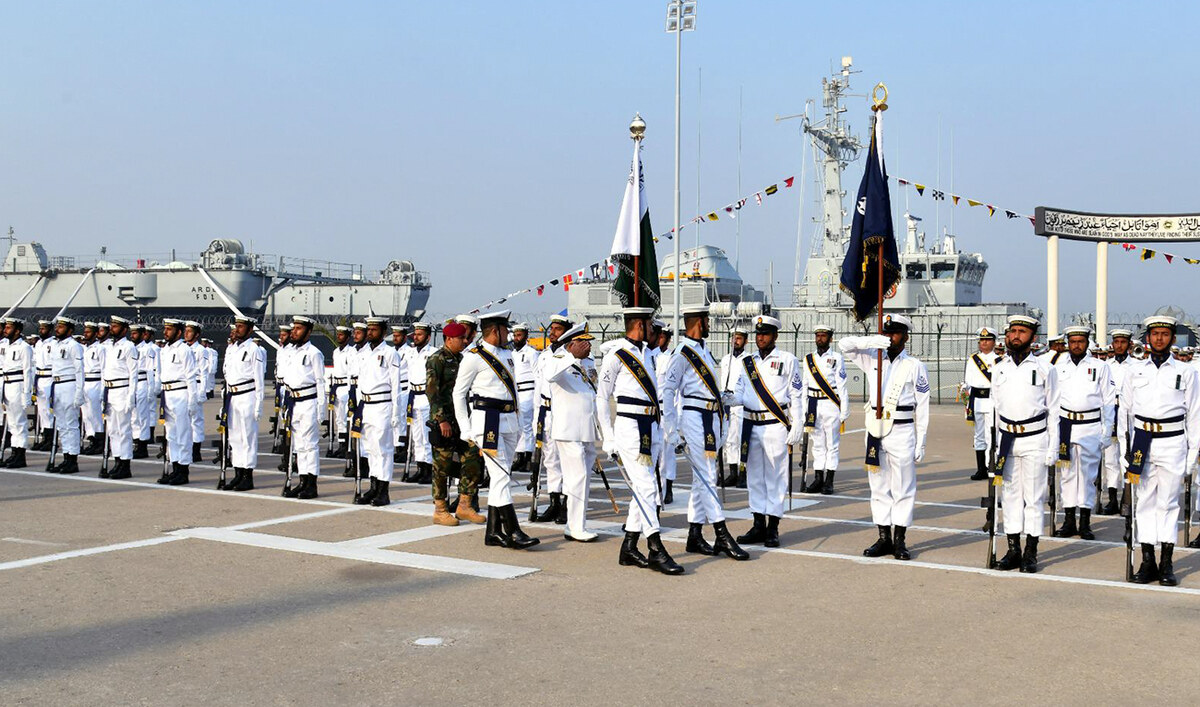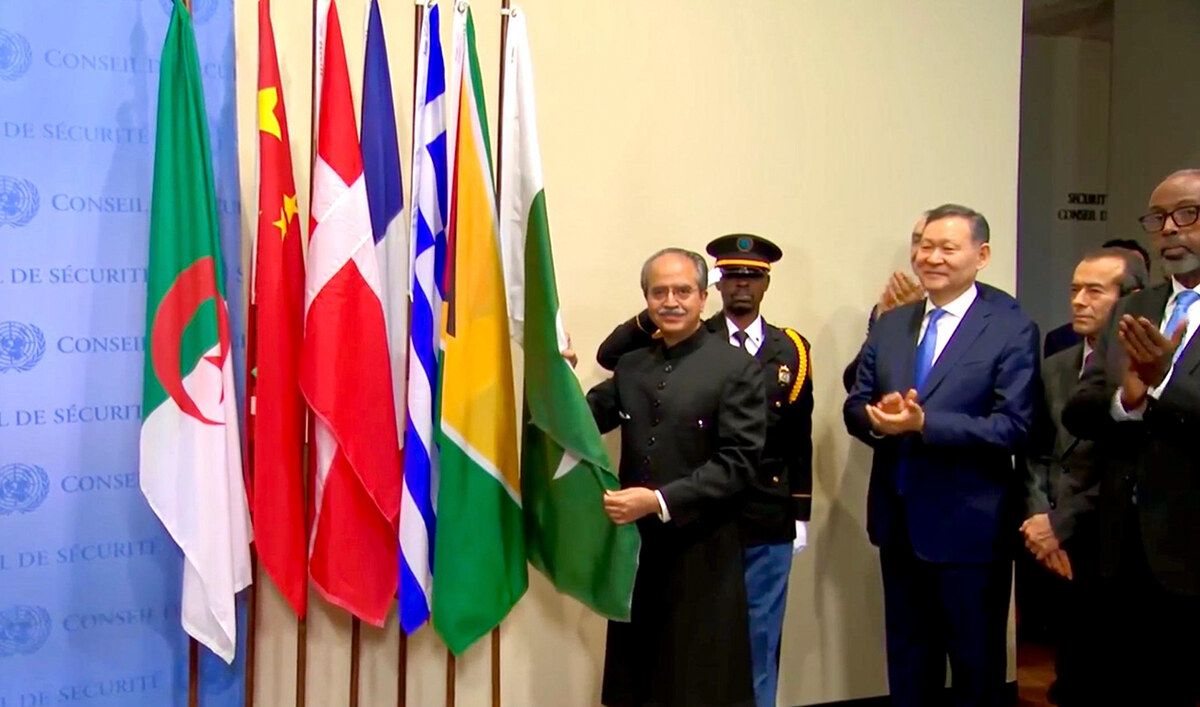SAMUNDRI, Pakistan: Muhammad Ikram, who was born without arms, steps up to a snooker table, sizes up his options and with a firm flick of his chin strikes the cue ball and slots a red into a corner pocket.
The sport was perhaps an unlikely passion for Ikram, 32, to pursue, but the Pakistani player has spent years honing his skills and can now give anyone at his local snooker hall a run for their money.
“It is a tough job that requires hard work. If there is a player like me, I am ready to face him,” Ikram told AFP during a recent visit to the snooker hall in the small town of Samundri in Pakistan’s eastern province of Punjab.
Born into a poor home, he and his eight siblings did not go to school and he spent much of his childhood feeling isolated.
As a teenager, he started to watch players in the local snooker hall and was inspired to start practicing “in secret.”
“In the beginning, I used to push the balls by myself on an empty pool table,” Ikram said.

In this picture taken on September 28, 2020, Muhammad Ikram arrives at a local snooker club in Samundri. Ikram, who was born without arms, steps up to a snooker table, sizes up his options and with a firm flick of his chin strikes the cue ball and slots a red into a corner pocket. (AFP)
“Gradually, I improved my game and started playing with others.”
Ikram can now challenge the best players in town.
He demonstrated a range of shots, giving a solid and assured flick of his head to sink reds and then colors into pockets, drawing applause from other players.
“Chalk your chin,” one of them quipped after Ikram eventually missed a shot.
Worried he might injure himself, Ikram’s parents initially barred him from snooker for several years, but last year they allowed him to return to the sport.
His skills quickly turned him into something of an Internet celebrity among Pakistan’s snooker-playing fraternity.
“I become famous,” Ikram said, though he confessed to having no idea what social media is.
Cricket is by far Pakistan’s most popular game, but snooker holds an important place in the country’s sporting scene.
British officers introduced the game during the colonization of the Indian subcontinent and Pakistan’s founder, Muhammad Ali Jinnah, was a keen player.
Pakistan keeps no up-to-date statistics on people with disabilities, but non-governmental organizations estimate there to be more than 30 million in a country of about 220 million
A lack of a social safety net means the majority of the disabled population stay home.
Muhammad Nadeem, who owns the Samundri snooker hall, described Ikram as a “true sportsman.”
“We don’t charge him for a game. Instead people pay him to play with them,” Nadeem said.
“He has no competition, in cricket and football there are disabled players but when it comes to snooker he is a one-of-a-kind player.”




















